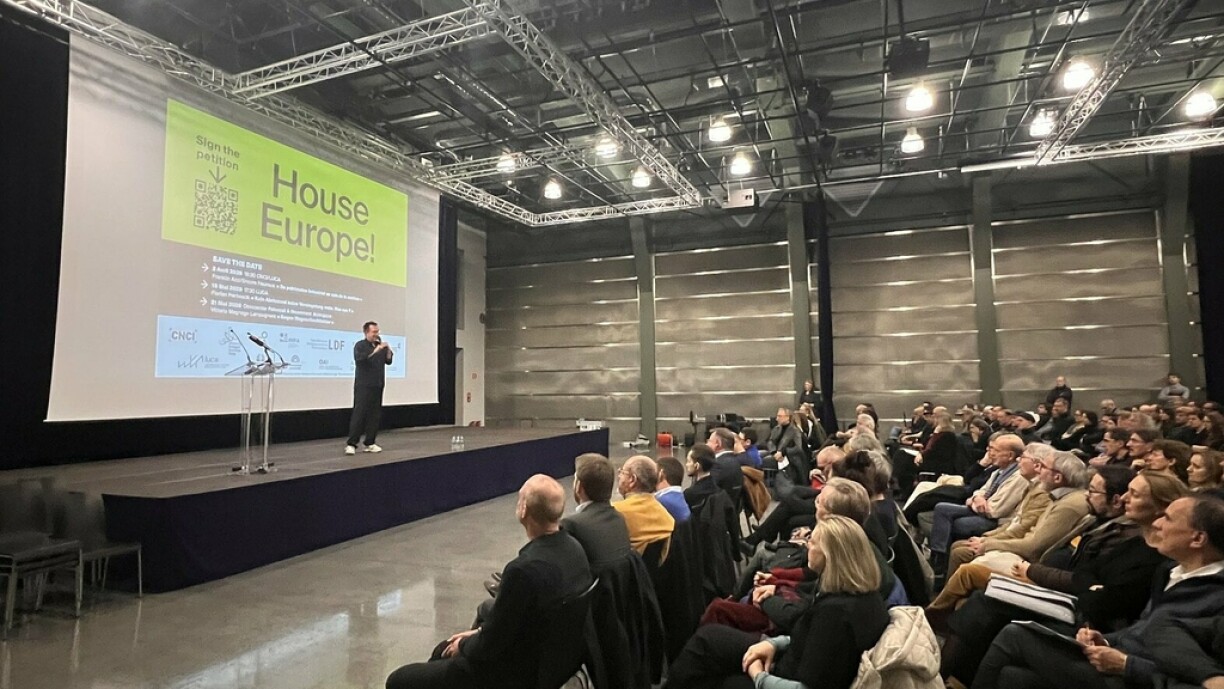
The European citizens’ initiative “House Europe!” is pushing for the renovation and restructuring of existing buildings to become the standard across the European Union. The initiative aims to make building renovations easier, more affordable, and more socially inclusive, while also promoting sustainable construction practices.
Recently, 11 experts from various fields, including architecture, monument conservation, and research, gathered for a roundtable discussion at Tramsschapp. The event focused on new EU laws designed to facilitate building renovations and restructurings. One of the key demands put forward by “House Europe!” is to make renovating existing buildings more cost-effective than constructing new ones on empty plots. To achieve this, the initiative is calling for a “right to recovery” for buildings, which would prioritise renovation over demolition.
The initiative does not seek to ban new construction outright but aims to “revolutionise” it by ensuring that new buildings are designed in a way that makes future renovations easier, cheaper, and less resource-intensive. According to Professor and architect Florian Hertweck, the initiative is not about imposing bans but about introducing sensible regulations.
Hertweck outlined three key proposals: reducing VAT for all types of building renovations, not just residential projects; addressing “grey energy”, which refers to the energy consumed during a building’s construction and remains significant even at the end of its life cycle; and revising standards for extending existing buildings. “It’s about taking these factors into account”, Hertweck explained. “This means we can lower the standards when extending an existing building and better assess the value of existing structures, which are often undervalued today.”
In Luxembourg, two petitions have been launched to oppose the demolition of buildings, but Hertweck acknowledged that they have had limited impact. As a result, “House Europe!” is focusing its efforts at the European level. The initiative aims to collect 1 million signatures from across the EU, which would allow it to formally submit its proposals to the European Commission for consideration.
Architect and co-founder of the initiative, Arno Brandhuber, emphasised that buildings represent a significant reservoir of energy. “It’s not just the physical labour that goes into constructing them”, he explained, “but also the energy embedded in the manufacturing and transportation of building materials to construction sites.” When these structures are demolished and rebuilt, the same energy must be expended again.
“By renovating instead of rebuilding, we preserve all this energy”, Brandhuber noted. He added that this approach offers multiple benefits: it helps mitigate climate change by reducing temperature increases, provides investors with more secure long-term returns, and addresses social concerns by preserving existing communities. “In the context of housing, for example, renovation reduces the risk of displacement, ensuring that neighbourhoods retain their original residents rather than seeing them replaced entirely”, he said.
Globally, the construction sector accounts for 38% of CO2 emissions, while in Luxembourg, construction waste makes up 80% of all generated waste. The initiative argues that prioritising building renovations could play a crucial role in helping the EU achieve its climate targets.
Those interested in learning more about the initiative or supporting its mission can find additional information here.